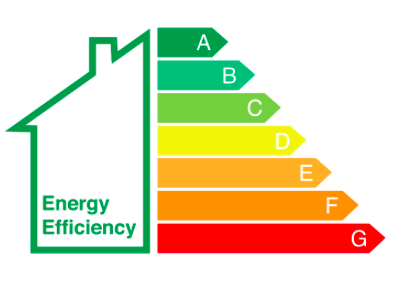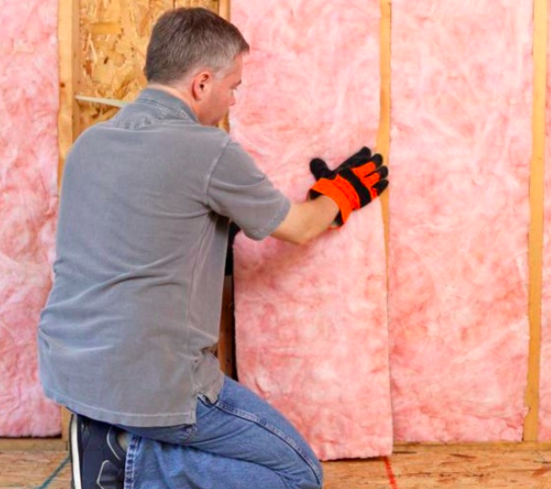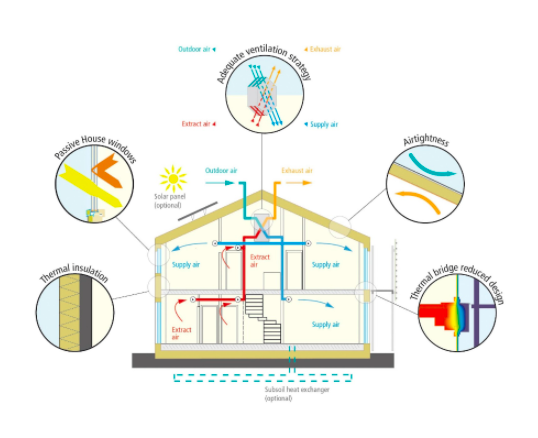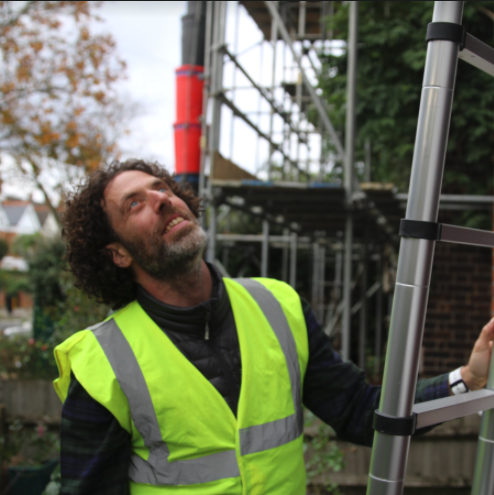Energy matters: improving the energy efficiency of our homes
It’s a sad fact that today most of us know more about the energy efficiency of our toasters and kettles than our homes – usually the most expensive thing we’ll ever buy, or our biggest monthly outlay if we’re renting.
Today on the blog, I’d like to talk about improving the energy efficiency of our homes, sometimes called ‘retrofitting’. This issue is topical at the moment and affects us all, whether we rent or are homeowners, as it has serious financial and environmental implications and impacts our health and wellbeing.
Although I’m not an energy expert by any means, as a working surveyor I’m often asked about energy efficiency and am privileged to survey and observe many different homes and buildings. Sadly, the provisions I encounter in many properties – including my own home – are often inadequate, and it seems that over the years home energy efficiency has become a bit of a blind spot for many of us.
The current hikes in fuel prices are quickly focusing minds and bringing the issue to people’s attention though, and I believe that in the coming years, we’ll all be making some fairly significant changes to the way we use energy in our homes as a result. I’m currently having some insulation work done on my own floors, walls and roof at home for this very reason.
It’s also likely that future mortgage levels and rental agreements will be based on Energy Performance Certificate (EPC) ratings, so even if energy efficiency isn’t something we’re that bothered about now, we’re likely to be in future. Surveyors like me will probably be required to provide more and more detailed retrofit advice in the coming years too, particularly for older buildings.
In this blog, I’ll be sharing some of the issues and opportunities to improve energy efficiency in our homes – such as through insulation, heating, lighting and ventilation – as well as some easy tips and tricks you can start with today.
First up, let’s start with some stats
18% of UK carbon emissions come from our homes alone.
3.3 million UK households are currently living in fuel poverty.
The UK has set targets to reduce emissions by 78% from 1990 levels by 2035 and to net zero by 2050.
What’s the issue?
The challenge to retrofit existing homes to tackle the climate crisis is enormous: around 19 million properties need some energy efficiency upgrade, and the overall cost to meet net zero from domestic buildings is likely to be higher than the Government’s estimate of £35 billion and closer to £65 billion. In short: this issue is not being taken seriously enough.
Some notes on EPC Ratings
Whilst raising the general profile of energy efficiency in residential buildings, EPC certificates leave a lot to be desired. There has been a race to the bottom to provide a cheap product, meaning EPC assessors may be more likely to make mistakes and/ or guess about a property’s construction and services. Since 2018, landlords can only legally grant a new tenancy of a property at or above the minimum EPC rating E. The government wants all residential properties to reach a minimum EPC rating of C by 2030.
Insist on insulation
Insulation is one of the best ways we can improve energy efficiency at home, but it’s not always easy or cheap. Here we are talking about the property’s walls, windows, floors, ceilings and roof.
Improvements include replacing single glazing with double glazed windows, which help cut heat loss, make rooms easier to heat and reduce heating bills. UPVC windows have an expected lifespan of about 35 years, while good quality timber windows can last up to 65 years if maintained (painted) properly.
Replacing old timber doors with UPVC doors can also help save money on energy bills, and external wall insulation, cavity insulation is an option, although it is a challenge and expensive to insulate solid walls. Lastly, insulating pipework and hot water tanks is another good way to save energy at home.
Heating your home
Boilers account for around 47% of home energy use, while water heating accounts for around 14%. Replacing an old gas boiler – which may only be 40% efficient – with a high-efficiency condensing boiler, combined with improving your heating controls, could cut up to 30% off your bills.
With the expected phasing out of gas condensing boilers to new properties in 2025, the big question is what technology will replace them. Air source heat pumps, hydrogen boilers and electrical boilers could all play part of the mix.
To improve heating efficiency, you could fit a smart thermostat i.e. Nest or Hive, which claims its Active Heating Thermostat could save you up to £110 a year. According to Google, Nest users in the UK save between 8.4% and 16.5% on heating bills a year.
Fitting Smart radiator valves is another excellent addition to any smart heating system. They allow you to control the heating on a room-by-room basis and become even more energy efficient.
Lower the lights
Lighting accounts for around 12% of home energy use, so turning off unnecessary lights not only helps reduce light pollution but can lower your electricity bills. Today’s low energy LED lightbulbs use up to 80% less electricity than ordinary ones, last up to 50,000 hours, and are widely available online and in stores.
Don’t hate, ventilate
Here we’re talking about issues like condensation and mechanical ventilation in kitchens, toilets and bathrooms. Did you know that washing and drying clothes accounts for around 13% of home energy use? Some good tips include avoiding drying clothes indoors, or only doing this in rooms with opening windows. Drying your washing outside on a line is one of the simplest ways you can save money on bills and not add to emissions. It is worth replacing noisy extractor fans that get turned off with a quiet one.
Some more solutions
Further sustainable and energy efficient options for consideration include solar panels, air and ground source heat pumps, and solar thermal water heating provisions. Although these items can be expensive, some of them might qualify for a Green Deal loan or other government scheme.
Useful resources and further reading
Home energy efficiency is a huge topic and I’ve barely scratched the surface in this blog, so if you’d like to dig deeper and find out more, here’s some useful reading and resources:
Surveys in south London
If you’re looking for a residential survey that includes information on energy efficiency, you’ll need a RICS Home Survey Level 3 – formerly known as a Building Survey. I’m pleased to offer this type of survey to homebuyers, investor-developers and housing associations in the south London area and my service is always transparent, reliable and affordable. Contact me today if you’d like to have a chat: I’m on 07957 606886 or at roo@rmsurveyors.co.uk






